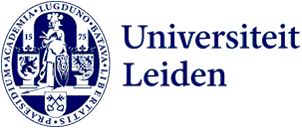Aleydis Nissen on K-pop popularity in Saudi Arabia
Saudi Arabian Crown Prince Mohammed bin Salman’s Vision 2030, an effort to reduce the country’s reliance on oil, may open up new opportunities for Korea. Spearheading the way is Hallyu — the Korean wave, led by K-pop and dramas as a soft power to open new business opportunities in the Middle East, especially Saudi Arabia.

Once considered a mysterious territory, K-pop bands have been taking centre stage in Saudi Arabia since 2019, and in recent years dramas have been making headlines. In July 2019, boy band Super Junior became the first K-pop act to hold a solo concert in the Middle Eastern country. Tickets were sold out within three hours. In October that year, BTS was invited by Prince Mohammed and filled a stadium with 30,000 fans in October 2019 at the King Fahd International Stadium, becoming the first non-Arabic act to headline the venue.
The reason K-pop has been bestowed with the kingdom’s good graces, despite it having viewed pop culture negatively until a few decades ago, is because Korean culture is considered to be less provocative or graphic than Western content, and has 'less nudity', according to Mohamed Ibrahim El Askary, professor of Arabic Interpretation and Translation at the Hankuk University of Foreign Studies.
Human rights issue
But one thing that the Korean companies must take caution with is the human rights issues in the Middle East, according to Aleydis Nissen, a postdoc researcher at Leiden Law School. 'K-pop has come to be associated with open-mindedness and female empowerment in recent years in Saudi Arabia, which is why K-pop companies must take caution in their moves', she said to Korean newspaper Korea JoongAng Daily.
'Saudi citizens live under an authoritarian regime, but the citizens are not responsible for the country’s institutional human rights abuses,' she said. 'K-pop agencies should remain very careful when they plan live concerts or gatherings. They need to make sure that they do not become involved in human rights violations through their business relationships […] If K-pop agencies can cover these essential basics and protect the reputations of their artists, then they can bring about some real change.'
